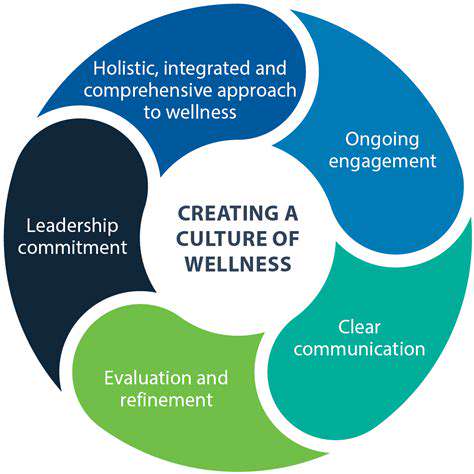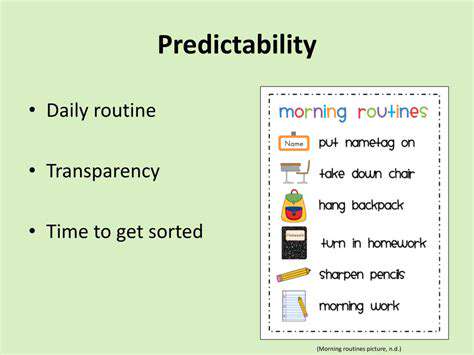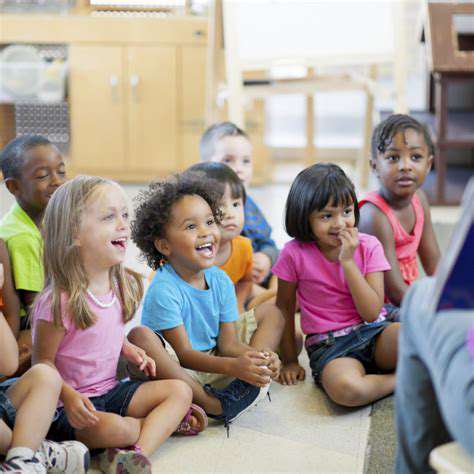Creative Ways to Engage Toddlers in Playtime Activities
1. Create a Safe and Stimulating Environment
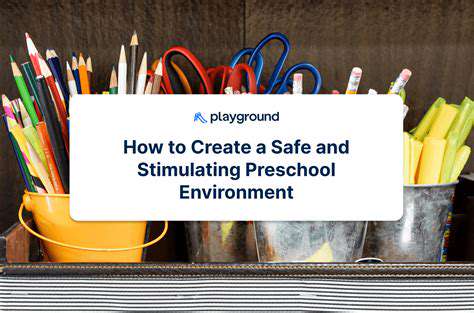
Designing a Play Space
When creating a play space for toddlers, it's essential to choose a dedicated area where they can explore safely. A clear and organized space reduces the risk of accidents, allowing little ones to focus on imaginative play. Adding soft mats and cushions can provide comfort and safety for your active toddler.
Incorporating various play zones can stimulate curiosity. Rotating toys and activities keeps their interest alive, fostering a dynamic environment where they can learn and grow through play.
Incorporating Nature Elements
Bringing natural elements into the play area can enhance sensory experiences for toddlers. Simple items such as leaves, rocks, and flowers can intrigue them, encouraging outdoor exploration and creativity.
Setting up a small garden or a nature table can also serve as an educational tool. This allows toddlers to connect with the world around them while engaging in imaginative play. Observing nature can inspire storytelling and foster a sense of wonder.
2. Incorporate Sensory Play
Incorporate Sensory Play
Sensory play is an excellent way to engage toddlers in playtime activities. It allows them to explore and interact with different textures, smells, tastes, and sounds. You can set up a sensory bin filled with rice, beans, or sand and hide small toys or other objects for your toddler to find and discover. You can also make a sensory bin with water and add soap, oil, or shaving cream for a fun and educational experience.
Another idea is to create a sensory table with different materials such as playdough, slime, or sand. You can also make a sensory bottle by filling an empty plastic bottle with water, oil, and food coloring, and adding glitter or small beads for a fun and interactive experience. Sensory play helps develop your toddler's senses and encourages them to explore and learn about the world around them.
Use Music and Movement
Music and movement are great ways to engage toddlers in playtime activities. You can put on some fun and upbeat music and encourage your toddler to dance and move around. You can also make up simple actions and movements to the music, such as clapping hands or twirling around.
Another idea is to incorporate instruments into your playtime activities. You can use simple instruments such as maracas, tambourines, or drumsticks to create a fun and engaging experience for your toddler. Music and movement help develop your toddler's gross motor skills and encourage them to express themselves creatively.
Tell Stories and Use Imaginative Play
Telling stories is an excellent way to engage toddlers in playtime activities. You can make up simple stories using props and costumes to help bring the story to life. You can also use puppets or stuffed animals to act out the story and encourage your toddler to join in.
Imaginative play is another great way to engage toddlers in playtime activities. You can set up a pretend play scenario such as a kitchen, store, or doctor's office, and encourage your toddler to use their imagination and creativity. Imaginative play helps develop your toddler's problem-solving skills and encourages them to think creatively.
Get Outdoors
Getting outdoors is an excellent way to engage toddlers in playtime activities. You can take a nature walk, go for a bike ride, or visit a nearby park or playground. Being outdoors helps develop your toddler's gross motor skills and encourages them to explore and learn about the world around them.
Another idea is to create a backyard obstacle course using items such as hula hoops, cones, or small hurdles. You can also set up a scavenger hunt with items such as leaves, rocks, or flowers for your toddler to find and collect. Getting outdoors helps develop your toddler's problem-solving skills and encourages them to be more active.
Play Cooking and Baking
Playing cooking and baking is an excellent way to engage toddlers in playtime activities. You can set up a play kitchen or baking station with play food, utensils, and dishes for your toddler to use. You can also bake simple recipes together, such as cookies or muffins, and let your toddler help with measuring ingredients and mixing.
Playing cooking and baking helps develop your toddler's fine motor skills and encourages them to be more independent in the kitchen. It also teaches them about measuring ingredients, following recipes, and cooking safety. Playing cooking and baking is a fun and engaging way to spend quality time with your toddler.
3. Utilize Role-Playing Activities
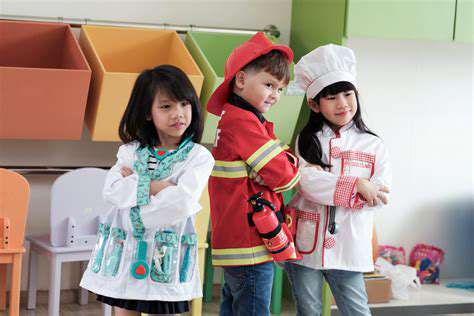
1. Exploring Different Characters and Scenarios
Role-playing allows toddlers to engage their imagination and creativity by exploring different characters. Whether they pretend to be a doctor, a teacher, or a superhero, role-playing helps them understand various roles in the world around them. In a simple setup, parents can provide costumes or props that align with the characters. Encouraging toddlers to create their own stories while in character can dramatically enhance their storytelling skills.
Furthermore, role-playing can involve everyday scenarios, like shopping at a grocery store. This type of play can teach valuable life skills, such as decision-making and social interactions. When involved in such activities, toddlers can learn important vocabulary related to their roles. Strong engagement can lead to discussions about health, safety, and other significant topics.
To make it even more fun, consider incorporating sensory elements, such as sounds or textures. For example, using a toy doctor kit can make the role of a doctor come alive. These sensory experiences not only captivate toddlers' attention but also enhance their learning. Parents can also rotate roles frequently to keep the activities fresh and exciting.
2. Incorporating Storytelling into Role Play
Storytelling is an essential component of role-playing that can provide further structure and context. By narrating a story involving the characters, parents can set the stage for toddlers to act out scenes. Through storytelling, children learn the importance of plots and characters, enriching their cognitive development. It's a fantastic way to foster a love for literature and imagination.
When creating stories, encourage toddlers to contribute their ideas, allowing them to feel invested in the storyline. Using familiar fairy tales or popular animated films as inspiration can make it easier for them to grasp the characters. In these situations, the collaboration in storytelling promotes communication skills. Parents might also introduce new vocabulary during these plays to expand their children's language abilities.
Encouraging toddlers to take turns telling the story can cultivate a sense of patience and listening skills. Adding actions or sounds to the storytelling process can make it more interactive and engaging. To further enhance the experience, parents can use puppets or dolls to act out different characters within their narrative. This interactive storytelling can build foundational social skills that benefit toddlers in various aspects of life.
3. Setting Up Themed Play Areas
Themed play areas can transform a simple space into an immersive role-playing environment. For instance, setting up a kitchen area can encourage toddlers to pretend to cook, fostering imaginative play. Using everyday items as tools can make each role even more relatable and enjoyable. In such environments, children can experiment with different social roles and responsibilities.
Parents can creatively arrange props that fit the theme — such as play food, utensils, and aprons for a restaurant setting. Encouraging collaborative play in these themed areas can improve teamwork and communication skills. It's vital that parents participate in these activities not only to guide toddlers but also to model appropriate interactions. The joy of cooperative play can create cherished memories for both parents and toddlers.
Lastly, changing themes regularly can maintain toddlers' interest in play. Ideas for themes might include a fire station, market, or even a space adventure. Rotating themes not only keeps playtime exciting but also allows for diverse learning experiences. Exploring various aspects through themed play can lead to a more enriched developmental experience.
4. Encourage Creative Expression
Understanding the Importance of Creative Expression
Creative expression is vital for toddlers as it allows them to explore their feelings and ideas in a safe environment. Through art, music, and imaginative play, children can articulate their emotions and develop a sense of self.
Engaging in creative activities can also enhance cognitive development. As toddlers experiment with different materials and techniques, they learn to solve problems and think critically.
Furthermore, creative expression fosters language development. As children describe their creations or enact stories, they expand their vocabulary and improve their communication skills.
Ultimately, encouraging creativity helps toddlers build confidence. Successfully completing an art project or performing a skit nurtures a sense of accomplishment and encourages them to take risks in their learning journey.
Fun Art Projects for Toddlers
Simple art projects can be both fun and educational for toddlers. Finger painting is an excellent way for little ones to explore colors, textures, and shapes while enhancing their motor skills.
Collage-making can also be a wonderful activity. Providing magazines, colored paper, and safe scissors allows toddlers to express their creativity and practice cutting skills.
Nature-inspired art projects, such as leaf printing or painting rocks, connect toddlers with the outdoors while encouraging them to observe and appreciate their surroundings.
Lastly, introducing seasonal crafts—like snowflake decorations in winter or flower art in spring—can spark interest in nature’s changes and help children understand cycles in the world around them.
Incorporating Music and Movement
Music and movement are integral to creative play. Singing songs and dancing not only promote physical activity but also enhance rhythm and coordination in young children.
Creating simple instruments, like shakers or drums, can be an engaging way for toddlers to experiment with sound and rhythm. They can learn cause and effect, as they discover how different materials produce varying sounds.
Movement activities, such as musical chairs or freeze dance, invite toddlers to express themselves physically while reinforcing social skills like taking turns and following directions.
Integrating music and movement into playtime nurtures a love for the arts and encourages toddlers to express themselves in various ways, making playtime even more enriching.
Imaginative Play and Role-Playing
Imaginative play is a crucial component of toddler development, as it encourages creativity and social skills. Setting up a play kitchen or a pretend shop allows toddlers to engage in role-playing scenarios that reflect real-life situations.
Providing costumes and props can enhance imaginative play. Whether dressing up as superheroes, animals, or their favorite characters, toddlers can explore different identities and narratives, promoting empathy and understanding of diverse perspectives.
Encouraging group play enhances social interaction. When toddlers collaborate on a make-believe adventure, they learn to share ideas, negotiate roles, and solve conflicts, which are essential life skills.
Creating story-time sessions where toddlers can act out parts of their favorite books further melds imaginative play with literacy, helping children connect with narratives while fostering a love for reading.
5. Incorporate Music and Movement
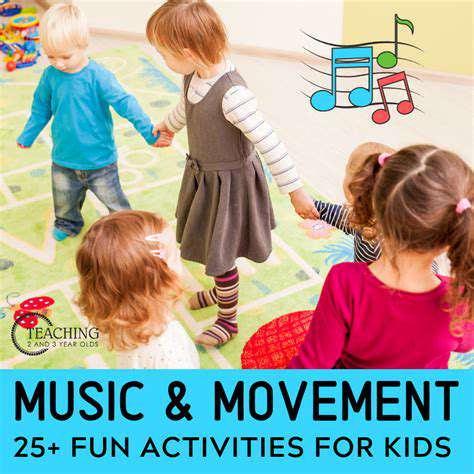
1. Create Simple Musical Instruments
One of the most enjoyable ways to incorporate music into playtime is by making simple musical instruments. You can use everyday items like empty cans, rubber bands, and plastic containers to create shakers and drums. This not only encourages creativity but also helps with rhythm and coordination.
Let toddlers experiment with their instruments and explore different sounds. For instance, filling a container with rice or beans allows them to see how the material changes the sound. Encouraging exploration fosters a lifelong love of music.
When toddlers play together with their instruments, it's a great opportunity for social interaction. They can imitate each other, create mini-bands, and even have dance parties, enhancing both their musical exposure and social skills.
2. Dance Parties with Themes
Hosting dance parties can transform an ordinary playtime into an exciting event. You can choose themes like animals or different countries, where the music and dance styles match the theme. This not only makes dancing fun but also educational.
Encourage toddlers to come dressed according to the theme, making it engaging from the start. Incorporating props like scarves or hats can enhance their imagination and participation. The more involved they are, the more they will enjoy the experience.
As they dance, you can introduce simple dance moves or games like freeze dance. This not only keeps their energy high but also aids in developing their motor skills and understanding of rhythm.
3. Sing-Along Sessions
Regular sing-along sessions can be a fantastic way for toddlers to connect with music. You can include classic nursery rhymes and songs, allowing them to learn lyrics and melodies. These sessions can greatly enhance their language development.
To make these sing-alongs even more engaging, consider using hand gestures or movements that go along with the songs. This encourages kinesthetic learning and helps toddlers remember the songs better. Physical engagement helps deepen their connection to the music.
Additionally, using props like puppets or soft toys while singing can ignite their imagination. It transforms the experience into something interactive and memorable, making singing a cherished part of their playtime.
4. Musical Storytime Adventures
Combining storytelling with music can create an immersive experience for toddlers. You can choose books that have rhythmic texts or stories that are accompanied by music. This approach stimulates both auditory and visual senses.
Encourage toddlers to act out parts of the story while music plays in the background. This not only turns storytelling into a dynamic activity but also promotes comprehension and retention of the story elements.
Playing soft, thematic music while reading can enhance the imagery of the story. This adds an extra layer of excitement and keeps toddlers engaged throughout the narrative.
5. Outdoor Musical Exploration
Bringing music outside can provide a refreshing change of scenery for playtime activities. Set up outdoor musical games like musical chairs or a nature-inspired dance party. The fresh air can elevate the mood and energy of the activities.
Explore natural sounds by going on a sound scavenger hunt where toddlers listen for different outdoor noises like birds, leaves rustling, or water flowing. This helps develop their listening skills and appreciation of nature.
Incorporating lessons about sound and music through various outdoor instruments can encourage curiosity. Items like wind chimes, leaves and sticks can be used to create music, making outdoor exploration a memorable educational experience.
6. Foster Social Play Through Group Activities
Understanding the Importance of Social Play
Social play is crucial for toddlers as it helps them develop interpersonal skills that are essential for early childhood development. During social play, children learn to share, cooperate, and communicate effectively with their peers. These foundational skills serve them well in future interactions, both in educational settings and in later life.
Observing their peers also enables toddlers to understand different perspectives and emotions. As they engage in group activities, they begin to recognize how their actions affect those around them, fostering empathy and consideration.
Group play can also enhance problem-solving skills. When faced with challenges during play, like figuring out how to share toys or take turns, toddlers learn to negotiate and develop efficient strategies for collaboration.
Furthermore, social play can reduce feelings of anxiety and insecurity. Interacting with other children helps toddlers build confidence within a community context, allowing them to express themselves freely and enjoy the support of their peers.
Encouraging social play from an early age sets a positive precedent for future interactions, ensuring that children are comfortable in diverse social environments.
Creative Group Activities to Boost Engagement
There are numerous activities parents and caregivers can utilize to foster social play among toddlers. One effective method is to organize group storytelling sessions, where each child contributes a sentence to create a fun collective narrative. This encourages creativity and invites teamwork in a light-hearted manner.
Art projects can also be a fantastic way to promote social interaction. Setting up a communal art station allows toddlers to collaborate on shared creations, whether it be a large mural or a group sculpture, which can enhance their bonding experience.
Outdoor playdates provide wonderful opportunities for toddlers to engage in activities like group games (e.g., tag or scavenger hunts) and sports if appropriate for their age. These physical activities not only improve their motor skills but also promote active communication and teamwork.
Another engaging group activity is musical play, where toddlers can enjoy playing instruments together or participate in a sing-along. Music naturally draws children in, making them feel comfortable expressing themselves and interacting with others.
Connecting through structured rhythmical play, like dancing in unison, can also foster a sense of community as they work together to stay in sync, further building their social bonds.
Tips for Encouraging Interaction During Playtime
To facilitate a successful play environment that promotes social interaction, it’s essential for caregivers to encourage rather than direct activities. Allowing children the freedom to initiate games fosters their creativity and independence while ensuring they feel engaged.
Being a positive role model is crucial as well. Caregivers who demonstrate kind interaction and healthy communication can model desirable behaviors. This can include praising acts of sharing and cooperation among toddlers, reinforcing the value of social engagement.
Creating a welcoming and safe play space is equally important. Ensuring the environment is free of distractions and has enough resources for group play, such as toys and materials, enables toddlers to fully partake in social activities without frustration.
Scheduling regular playdates can help establish routine social interactions for toddlers, which promotes comfort among peers. Familiarity with friends can lead to deeper social bonds and confidence in social skills over time.
Lastly, providing gentle guidance during play can help toddlers navigate social dynamics. Caregivers can intervene when conflicts arise, helping children understand resolution skills while empowering them to express their feelings constructively.
